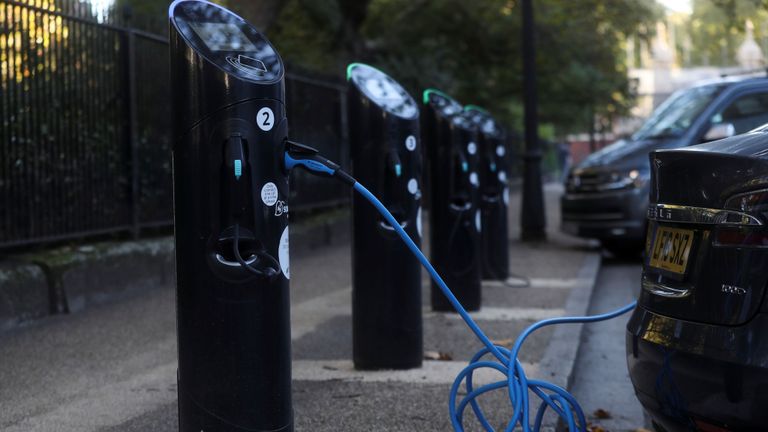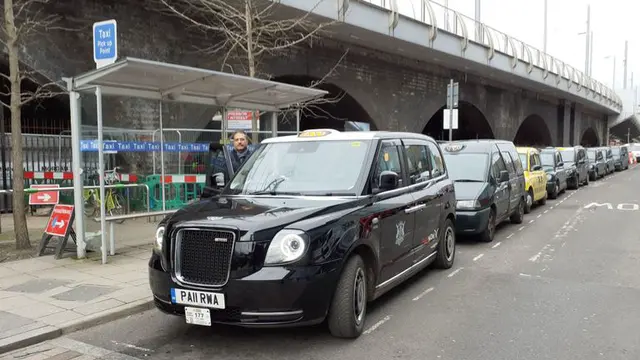Wireless on-street charging for electric taxis is to be trialled in the UK for the first time.
The pilot, supported by £3.4m of government cash, will see the technology installed at a cab rank outside Nottingham railway station.
Ten electric taxis in the city will be fitted with hardware to enable them to recharge their batteries by parking over five plates in the road while waiting for their next passengers.

Image:The wireless system is more convenient and avoids the clutter of chargepoints and cables
Electric taxi fleets in urban areas are crucial to cutting vehicle emissions and improving air quality, according to the Department for Transport (DfT).
It also said the wireless charging system was more convenient and avoided the clutter of chargepoints and cables.
Nottingham City Council will own the vehicles and provide them to drivers rent free in a six-month trial.
If the scheme is successful, the technology could be made more widely available to the public.
Wireless charging was launched for buses in Milton Keynes in 2014, but the vehicles could only recharge at the start and end of their routes.
Transport Secretary Grant Shapps said electric taxis were playing a leading role in tackling reducing air pollution in city centres.
He said: "New wireless technology will make using an electric taxi quicker and more convenient, allowing drivers to charge up at taxi ranks before heading off with their next passenger."
Listen to "A New Climate" on Spreaker.
**:: A New Climate is a series of special podcasts from the Sky News Daily. Listen on **
Apple Podcasts
**, Google Podcasts
, Spotify
, Spreaker
**
Business Secretary Andrea Leadsom said: "Charging technology, including wireless, is vital in giving consumers confidence to make the switch from petrol to electric cars.
"This pioneering trial in Nottingham, and others like it, will help us take crucial steps towards lower emissions and cleaner air.
"We are determined to end our contribution to global warming entirely by 2050 - and delivering cleaner and greener transport systems is a key part of this."
The Nottingham trial comes as other cities move to cut harmful pollution.
York is on track to have the
UK's first car-free city centre
, while Bristol has also previously announced plans to become the first UK city to **ban diesel cars by next year
** .
High-polluting vehicles entering central London already face
an extra £10 levy
on top of the £11.50 congestion charge.
 简体中文
简体中文



